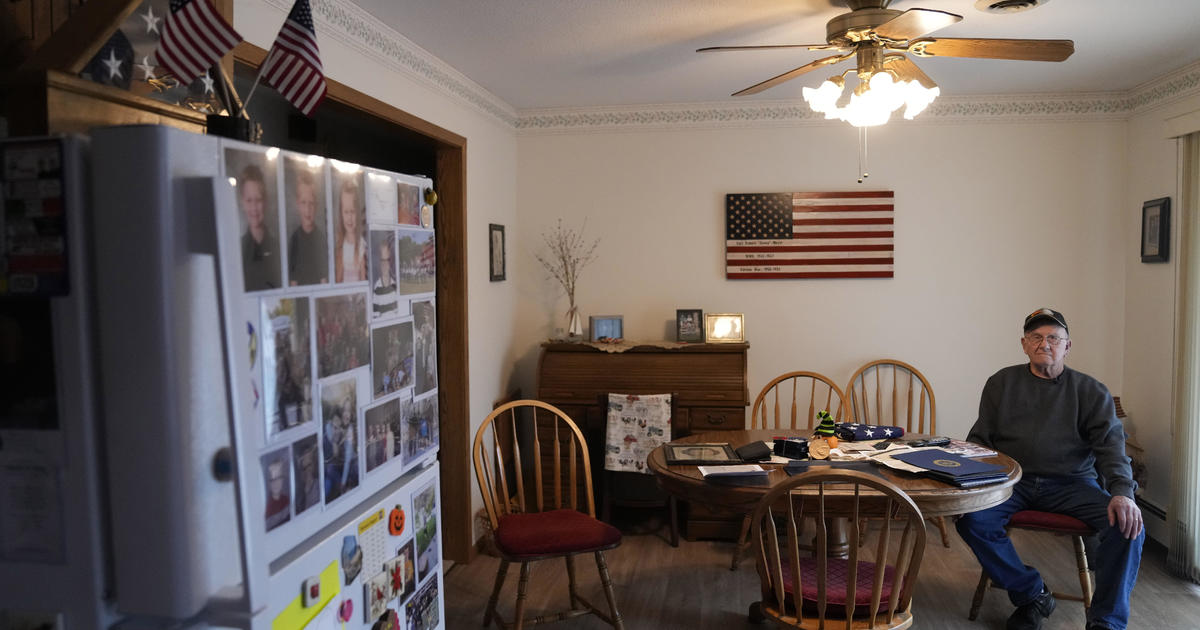Taxes, School Funding & Construction: Legislature's Work In Limbo
ST. PAUL, Minn. (AP) — Minnesota lawmakers wrapped up their work as midnight struck Sunday, but the session scorecard was still largely empty on Monday.
From revamping the state's tax code to enhancing security measures at public schools and clamping down on opioid abuse, much of the session's work was stuffed into just two massive bills — and Gov. Mark Dayton said late Sunday he planned to veto them. Dayton has 14 days to make his final decisions, and Republicans began a lobbying campaign with a parade of Minnesota residents and business owners calling on the governor to sign the bills on his desk.
"Today begins the pressure on our governor to do what's right and sign these bills," House Speaker Kurt Daudt said Monday.
Here's a look at what the Legislature passed and how much remains in limbo:
TAXES
Minnesota lawmakers sent Dayton legislation with the primary goal of syncing the state's tax code with sweeping federal changes, trying to ensure Minnesota residents aren't faced with a complex tax filing season in 2019. The bill would also phase in a cut to tax rates on the state's two lowest income brackets by 0.1 percentage point and 0.2 percentage point, meaning all taxpayers would see a modest cut.
VERDICT: Pending, but Dayton has threatened a veto. The Democratic governor already vetoed similar legislation once, arguing the bill didn't penalize companies who move foreign profits back to Minnesota harshly enough. But Republicans added a sweetener on the second try, folding in funding for schools in a budget crunch that Dayton had deemed essential.
SCHOOL BUDGETS
Republicans sprinkled money for schools through several different bills, pulling from several different funding sources to help avert teacher layoffs and program cuts. Much of the $225 million total came by allowing districts to shift existing funding for community programming and teacher training to solve their budget woes. Another $50 million would come from forcing the Department of Natural Resources to repay for using schools' land.
VERDICT: Pending, but Dayton has threatened a veto of all the bills. He and Democrats decried the funding as a "shell game," pointing out the vast majority of the money was existing funding.
PUBLIC CONSTRUCTION
Approving a package authorizing more than $1.5 billion in public works projects was one of the Legislature's final actions before the deadline. It includes funding for upkeep at Minnesota colleges and universities, grants to help cities upgrade water infrastructure, $5 million to help St. Paul demolish a crumbling parking ramp and $32 million to build three new veterans homes across Minnesota.
VERDICT: Pending. Democrats cried foul that some of the funding in the bill came from a voter-approved trust fund for environmental rehabilitation. But Daudt and fellow Republicans expressed confidence Dayton would ultimately sign the bill, and even Democratic Senate Minority Leader Tom Bakk said he expected the governor to approve it.
SCHOOL SAFETY
Fatal school shootings in Florida and Texas bookended Minnesota's legislative session, leading to broad agreement in an otherwise acrimonious year that officials needed to help schools pay for security enhancements.
The Legislature passed two bills that would help schools pay for bulletproof glass, monitoring systems, secure entrances as well as mental health counseling. Lawmakers included $28 million in a mammoth spending package and another $25 million in the public works bill.
VERDICT: Pending, but Dayton has threatened a veto of the government spending bill. If he follows through but signs the public construction bill, schools could still access some additional money to pay for security upgrades.
HANDS-FREE CELL PHONES
An eleventh-hour campaign at the Legislature to pass a law requiring drivers to use hands-free technology while behind the wheel petered out, as legislative leaders wouldn't put it up for a final vote.
Instead, lawmakers imposed stricter penalties for both first-time and repeat offenders of the state's distracted driving law. A first-time offender who previously got off free will now pay a total fine of $150. A second offense doubles to $300, while a third infraction in under five years is a misdemeanor and a fine of $500.
VERDICT: Pending, but Dayton has indicated he'd veto the government spending bill that contains this language.
OPIOID ABUSE
Lawmakers agreed going into this year's session that curbing opioid abuse was a high priority. But they couldn't agree on how to pay for it.
A proposal to charge drug companies roughly a penny per narcotic painkiller pill met stiff resistance from House Republicans who weren't eager to hit drug companies — and thus consumers — with higher taxes. Instead, lawmakers opted to set aside $16 million to fund treatment facilities using taxpayer dollars.
VERDICT: Pending, but Dayton has indicated he'd veto the government funding package that contains opioid prevention efforts. Dayton accused Republicans of caving to the pharmaceutical industry, while even proponents of a penny-a-pill fee urged Dayton to sign the bill.
"It is a start and is something that will bend the curve somewhat," said GOP Sen. Julie Rosen, who wrote the bill in the Senate.
GUN LEGISLATION
Thousands of protesters flocked to the Capitol throughout the session calling on lawmakers to expand background checks on gun sales and make other law changes after the deadly Florida school shooting in February followed by the recent fatal school shooting in Texas.
But those measures stalled in committees run by Republican majorities. Lawmakers instead focused on funding security enhancements inside school buildings, but even that money is in limbo.
VERDICT: Nothing doing.
SEXUAL HARASSMENT
The state's sexual harassment policies were under scrutiny heading into the legislative session after two male lawmakers resigned amid a slew of sexual misconduct allegations. Both chambers vowed to rework their own handling of those cases, and House Majority Leader Joyce Peppin led a late push to expand what cases could be convicted in the courts.
VERDICT: The House retooled their reporting procedures and policies internally, and the Senate has vowed to follow suit in the coming months. The House's new policies will be put to the test after sexual misconduct allegations surfaced last month against Mountain Lake Republican Rep. Rod Hamilton, who denied them.
But Peppin's push to remove the "severe or pervasive" legal standard that judges apply to sexual harassment cases stalled amid steep opposition from businesses and local governments.
(© Copyright 2018 The Associated Press. All Rights Reserved. This material may not be published, broadcast, rewritten or redistributed.)



